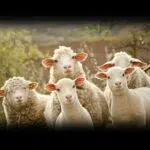International Heritage Breeds Week is held during the third week of May each year. It aims at increasing global awareness of endangered farm animal heritage breeds. In modern animal husbandry, many of our old cattle and poultry varieties have been replaced with more “improved” types, resulting in a tremendous loss of genetic diversity. Every month, roughly one domesticated livestock breed goes extinct. The Livestock Conservancy, a conservation organization dedicated to preserving unusual breeds, hosts International Heritage Breeds Week. Just a few decades ago, nobody imagined these breeds would be on the verge of extinction. However, contemporary farming practices have resulted in a diversity reduction.
History of International Heritage Breeds Week
Ever since humans domesticated animals, we used variants of cattle and poultry for food. Naturally, generations passed down these animals. In our case, many of the adorable animals we got from previous generations will soon become extinct. International Heritage Breeds Week is a grassroots effort to ensure future generations get to see these cherished animals. Efforts have been made to protect endangered breeds like the Iron Age Pig, Shetland Duck, and Northern Dairy Shorthorn Cattle. However, even with these efforts, we are still cornered. Every year, the world loses a large number of uncommon breeds.
In May 2015, the inaugural annual Heritage Breeds Week was conducted across the U.S. to raise awareness of endangered heritage livestock and poultry breeds in the U.S. The Livestock Conservancy created a national campaign to promote the week-long event. Heritage breed farmers and enthusiasts, and the general public were invited to spread the word to their networks. The event was so successful that The Livestock Conservancy now hosts International Heritage Breeds Week every year in collaboration with a group of livestock conservation organizations all over the world. More than 15 cattle groups were involved by 2018. Together, they began providing much-needed guidance to the general public on how they could help endangered breeds.
They also started to make the case that preserving heritage breeds is more than just a hobby. It was also crucial to maintain biodiversity. Agriculture in the modern era is akin to a “race to the bottom.” The preservation of cattle diversity aids in the halting of this process. Under industrial meat production circumstances, only livestock and cattle that provide ideal yields thrive. Boutique breeds do not receive the same level of attention from the industry. As a result, it is up to individual farmers and enthusiasts to keep them going. Unfortunately, many of these individuals lack the necessary resources to do this.
International Heritage Breeds Week timeline
Spanish explorers bring animals to the Southeast U.S. from which many breeds descend.
The ‘Chicken of Tomorrow’ contest is launched across the U.S. thanks to a collaboration between farmers, breeders, and suppliers, backed by cash rewards from A&P Food Stores.
The first livestock preservation group in the U.S. is founded by livestock breed lovers worried about the extinction of many of the country's historic livestock breeds.
Heritage Breeds Week is held for the first time across the U.S. in May to promote awareness of endangered breeds in the U.S.
International Heritage Breeds Week FAQs
What are heritage breeds?
Donkeys, cattle, goats, horses, sheep, pigs, rabbits, chickens, ducks, geese, and turkeys are the 11 livestock species classified as heritage breeds.
Why is it important to buy heritage breeds’ meat?
To support farmers in their effort to protect endangered species.
Why is it critical for farmers to raise heritage breeds?
It enhances genetic diversity in the livestock which provides security to the larger agricultural sector.
How to Observe International Heritage Breeds Week
Support breeders
Buy the meat of rare breed animals from local’s markets. This is a great way to support people who continue to breed them.
Go to a petting zoo
Take your child to a nearby petting zoo. It is a fantastic way to induce the future generation’s attachment to the environment.
Spread the word
Millions of people are unaware of the vital importance of heritage breeds or what they can do to protect them. Share this vital information on social media to let them know.
5 Mind-Blowing Facts About Heritage Breeds
They have longer lifespans
Heritage turkey hens are productive for five to seven years while breeding toms for three to five years.
They have a slow growth rate
Heritage breeds mature at a slower rate than current types, which allows their skeleton and organs to develop, resulting in fewer growth concerns than current breeds.
They are 50 heritage breeds of chicken
In the U.S., there are over 50 recognized heritage breeds of chickens..'
They are highly adaptable
Unlike modern seasonal breeds, many heritage sheep are nonseasonal and may breed all through the year; they are very adaptable to many climates.
Earliest domesticated livestock
Domestic goats have been depicted in artwork going back 12,000 years ago.
Why International Heritage Breeds Week is Important
It creates awareness
Individual farmers and hobbyists now shoulder the responsibility of protecting endangered breeds. Yet, many cannot get the required resources. The least we can do to support them is to raise awareness of Heritage Breeds Week.
New customers
Having heritage breeds items can help your farm stand out to attract new clients. Restaurants that cater to a culinary audience may be willing to give you a discount.
It protects our food system
Genetic diversity is indispensable for the food chain. This can also help ensure agricultural diversity in the future.
International Heritage Breeds Week dates
| Year | Date | Day |
|---|---|---|
| 2026 | May 15–21 | Friday–Thursday |
| 2027 | May 15–21 | Saturday–Friday |
| 2028 | May 15–21 | Monday–Sunday |
| 2029 | May 15–21 | Tuesday–Monday |
| 2030 | May 15–21 | Wednesday–Tuesday |































